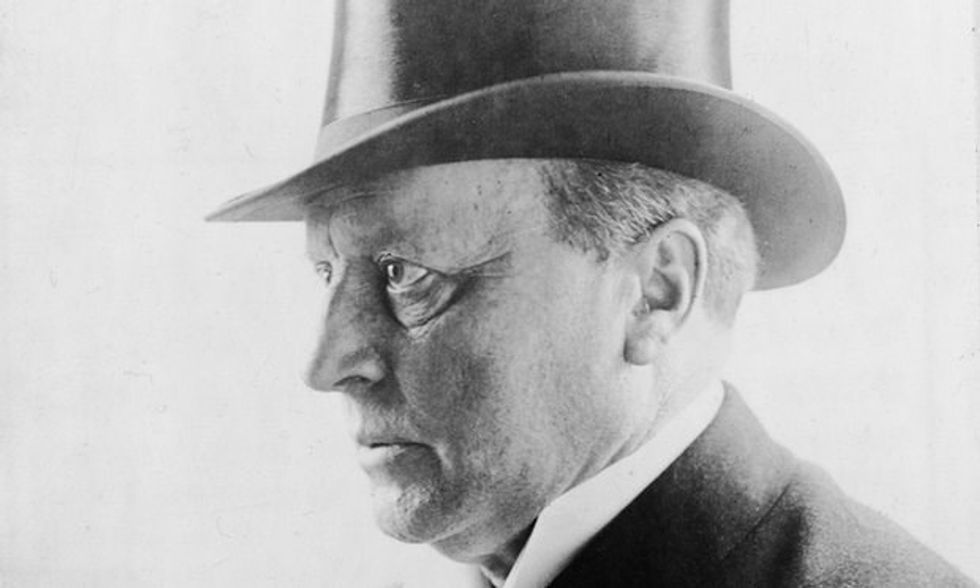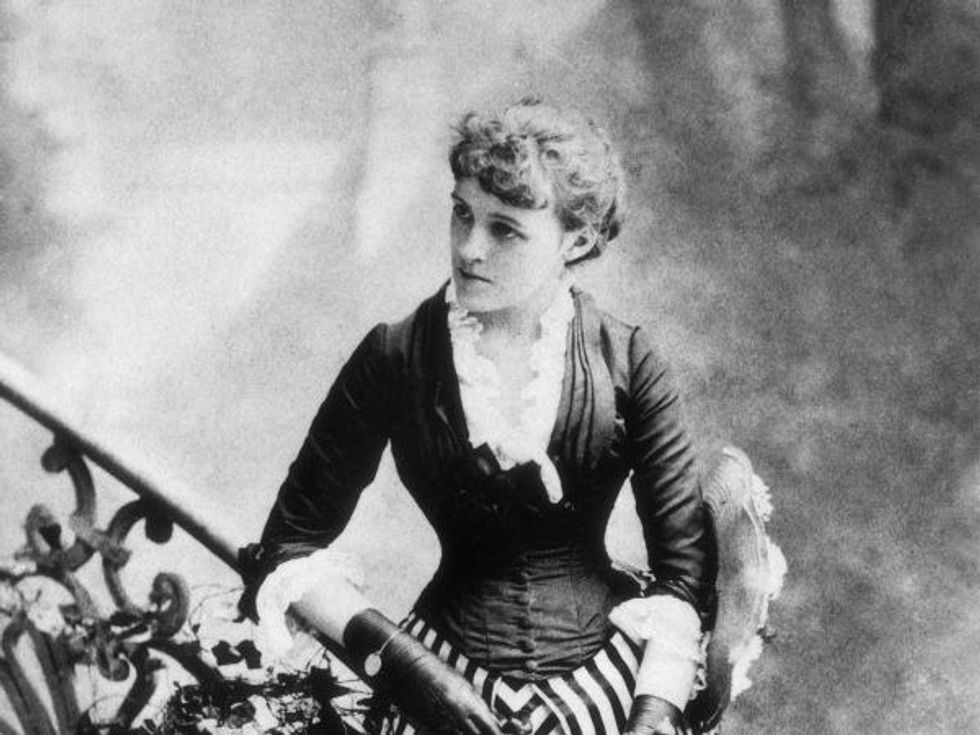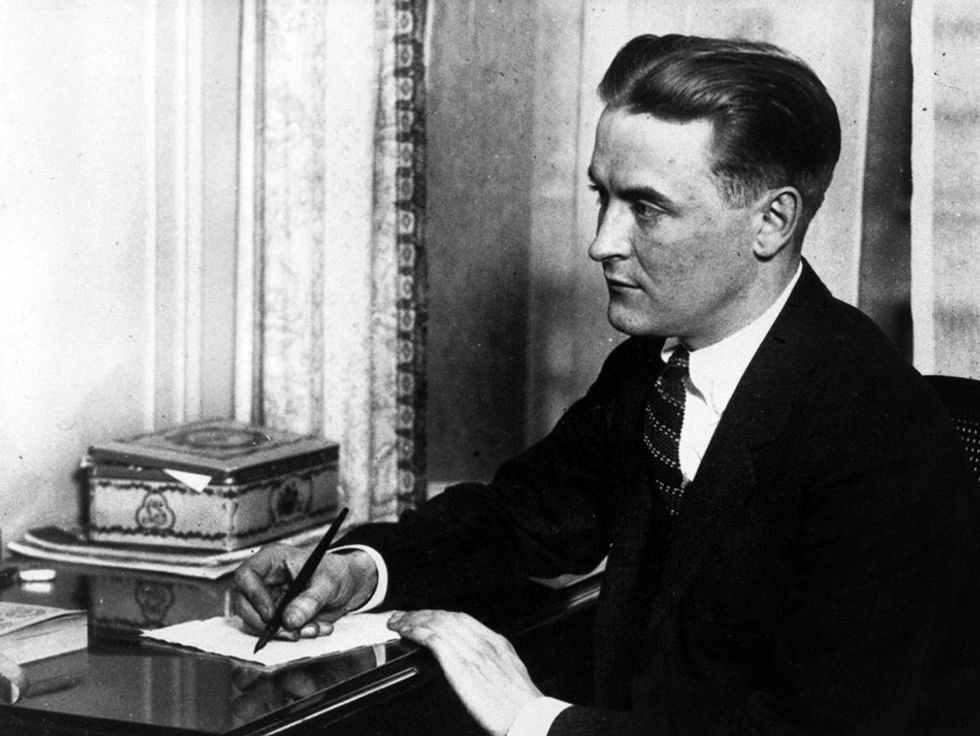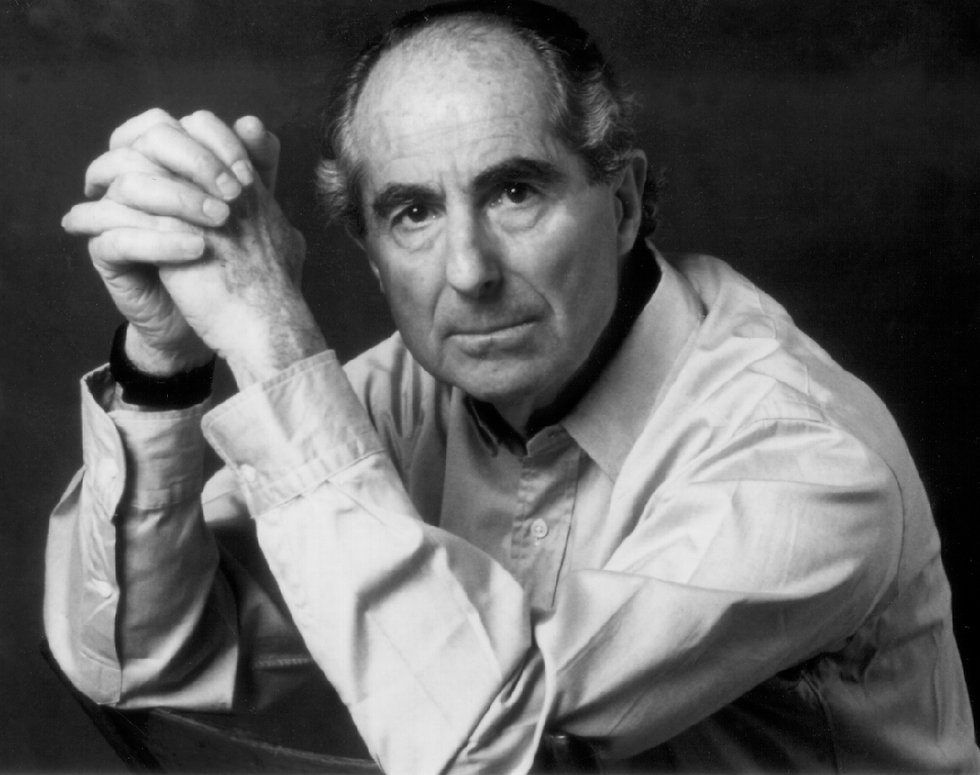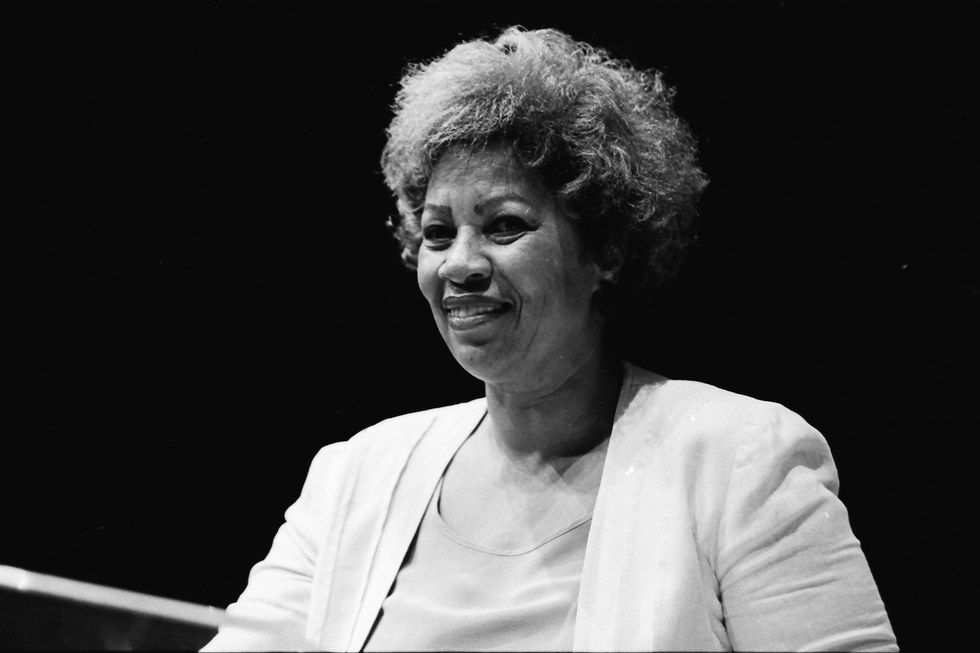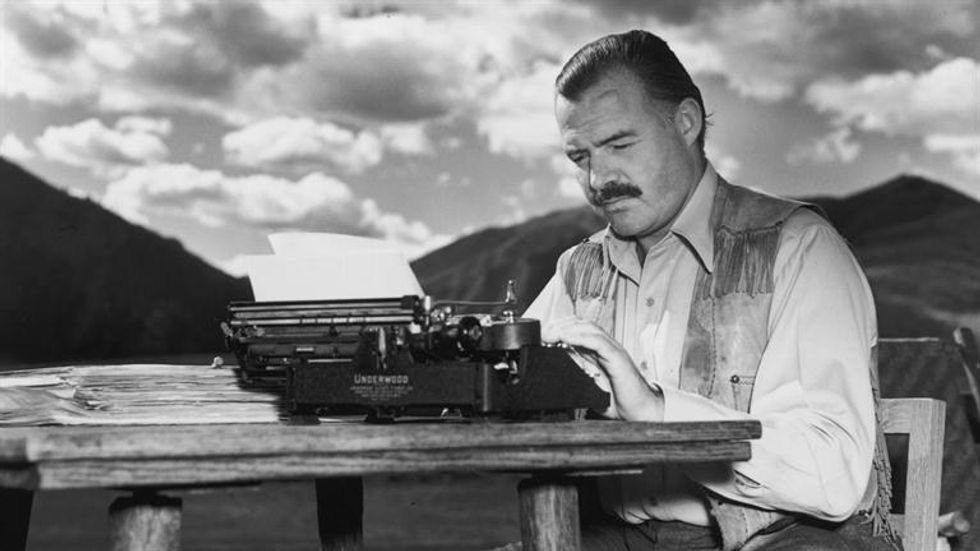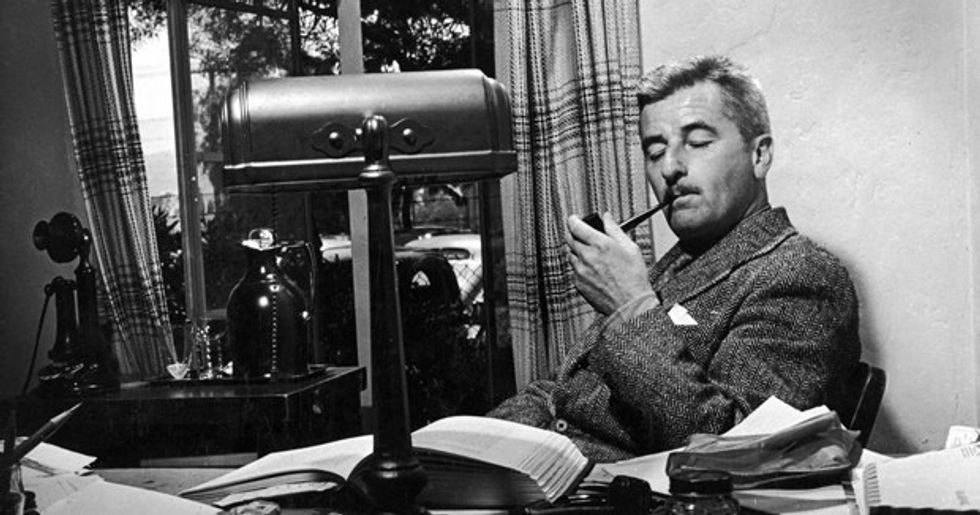Today, whether you grew up in Canada, Europe or China, one does not go through an entire childhood with any exposure to American Culture. Drive by a movie theatre, and you'll probably see a poster for an incoming Martin Scorcese movie, walk through a shopping district, and two-thirds of the retailers likely trace their origin back to the United States.
America has come a long way in 240 years since it first became a country. Although still a young nation compared to the likes of France and the United Kingdom, the political, economic, and cultural heights the United States has managed to surmount by-in-large surpasses the peaks its two European Counterparts have been able to reach.
So what makes America's culture seem so exceptional? The American Dream? Hollywood? Among many things the United States is praised for is its accomplishments in the realm of literature. From the dark romanticism of Nathaniel Hawthorne to the scathing portraits of the of race relations captured through the works of Toni Morrison, American authors have wielded the literary craft with such insight and poignancy that many of their novels are counted among the finest works in the canon of the English Language.
10. Henry James
Although he renounced his American citizenship near the end of his life in favour of becoming a subject of the British Empire, one cannot talk about American Literature without mentioning Henry James. Along with Mark Twain, James is considered one of the early practitioners of literary realism in the United States -- a style that would influence many writers who rose to prominence during the Gilded Age and the early stages of the Progressive Era. Furthermore, the embodiment of the stream of consciousness aesthetic in his works has lead many contemporary writers and scholars alike to hail him as the father of early modernism.
Though not widely read during his time, James was well respected among his literary peers that included Joseph Conrad and Edith Wharton, the latter to which he was a close friend and served as a mentor for. Among his finest novels are "The Portrait of a Lady", "The Wings of the Dove", "The Ambassadors", and "The Golden Bowl", in which the last three were featured on the Modern Library's list of 100 best English-language novels of the 20th century. To go with this recognition, James was also nominated for the Nobel Prize in Literature on three separate occasions in 1911, 1912, and 1916 -- the year of his death.
9. Edith Wharton
Like her friend and colleague Henry James, Edith Wharton preferred to keep her distance from America, spending much of her life in Paris where she is now buried. Born in the upper echelons of New York society, Wharton's scathing, but sympathetic portraits of the American Aristocracy stands as some of the only accurate and surviving accounts of what it was like to live in the exclusive circles of the gentility families -- most of which have now died off.
Publishing her first novel, "The Valley of Decision", in 1902, it was Wharton's work in "The Age of Innocence" that garnered her a Pulitzer prize 18 years later. As the first woman to be recognized under such a prestigious accolade for her literary craft, Wharton continues to serve as an inspiration for women who seek to embark on the travail of creating literature.
8. Mark Twain
Possessing a playful, subversive wit, no one possessed a pension for humour like Mark Twain, who seized every opportunity to satirize everything in his path. But that didn't stop some of his most loyal readership to think that the greatest humorist in America at the time sometimes crossed the line. When Twain published "The Adventures of Huckleberry Finn", the book became the subject of widespread negative backlash for using racial slurs to incite comical sensibilities.
Whether Twain was indeed a racist is a debate that continues to dominate the discussions of numerous scholars, though since the Missouri native was a realist, many are in favour of the argument that Twain only used derogatory language as a means to accurately portray the Antebellum South. Nevertheless, "Huck Finn" is considered to be one of the finest works in American Literature, and garnered Twain the title "the Father of American Literature". Among his most recognized works include "The Adventures of Tom Sawyer", "The Prince and the Pauper", and "The Connecticut Yankee in King Arthur's Court".
7. F. Scott Fitzgerald
A man of unusual intelligence and insight who never lived long enough to savour the fruit of his success, F. Scott Fitzgerald was a hero who's story indeed, ended in tragedy. Very few writers are able to capture an timeframe in their countries history, let alone define it, but thats what F. Scott Fitzgerald did. Thanks in large part to his works "This Side of Paradise", "The Beautiful and Damned" and the triumph in literary craft that was "The Great Gatsby", the glittering era of the 1920's forever bears the stamp of Fitzgerald's imagination as "The Jazz Age".
Washed up and broke near the end of his life, Fitzgerald's books were all but out of print before he passed away at the tender age of 44 while working on his final novel "The Love of the Last Tycoon". Today however, "Tender is the Night" is slated at 28th on Modern Library's list of 100 best English-language novels of the 20th century, while "The Great Gatsby" sits at number two, and bears the ultimate compliment one can give a book written in the United States -- "The Great American Novel".
6. James Baldwin
You cannot talk about America without talking about race, and a discussion about American Literature is impossible unless you mention what African American writers have contributed to this particular canon of the English Language. But along with arousing issue about race in his writing, as a homosexual, James Baldwin became one of the first writers to outwardly comment on sexuality a decade and a half before gay rights became widely espoused in America.
Striking a universal chord by addressing the obstacles that impeded African American, gay and bi-sexual men from discovering a sense of personal and outright acceptance in American Society, Baldwin is hailed is one of the "100 best African Americans of all time". His novels "Giovanni's Room" and "Go Tell It On the Mountain" has influenced the works of countless artists and activists from all walks of life, which include Toni Morrison in the world of literature, Elia Kazan from behind the flashing lights of Hollywood, Jean-Paul Sartre in the intellectual circles of philosophy, and Martin Luther King Jr. -- the main engineer behind Civil Rights Act of 1965 -- to name just a few.
5. Saul Bellow
Born in Montreal before his family immigrated from Canada to the United States, Saul Bellow spent his childhood in Humboldt Park on the west side Chicago, a place that would serve as the backdrop of many of his novels. One of the first Jewish American authors to come to prominence, Bellow is widely regarded for his books "Herzog", "Humboldts Gift", "The Adventures of Augie March", "Seize the Day" and "Ravelstein".
Seeking to examine the materialism, the maddening hysteria, and numerous issues that dominated modern civilization of postwar America in his works, Bellow's efforts translated into three National Book Awards, a Pulitzer Prize and a Nobel Prize in 1976. Scholars and writers alike hail Bellow as one of the greatest writers of the 20th century.
4. Philip Roth
Born in the Weequahic neighbourhood of Newark, New Jersey, the setting for many of his novels, Philip Roth was a friend and colleague of Saul Bellow who he met while completing his masters at the University of Chicago. Praised by renowned literary critic Harold Bloom along with Thomas Pynchon, Cormac McCarthy, and Don DeLillo as one of four most important writers of his time, Roth rose to prominence when he published "Portnoy's Complaint" in 1969. Highly controversial due to its explicit treatment of sexuality, this risqué novel, nonetheless, places 52nd on the Modern Library's list of 100 Best English-language novels of the 20th century.
Known for combining autobiographical elements with social commentary and political satire, these traits manifested in his most renown novel "American Pastoral". Painting a portrait of postwar American life during the late 1960's and the early 1970's, Roth's lucid, realistic style allowed him to capture the widespread, contagious upheaval that spread around the United States in the wake of the Vietnam War; a mastery of literary craft that garnered him a Pulitzer Prize. Roth was also a 2016 nominee for the Nobel Prize in Literature. Going up against the likes of Don DeLillo and Joyce Carol Oates, he lost the accolade to Bob Dylan.
3. Toni Morrison
Understanding the importance the need of the African American community to reconnect and make peace with its past, Toni Morrison dedicated her work to examine racism and slavery, and how it continues to spoil, and taint the American Conscience. Believing the slave narratives of Harriet Jacobs and Solomon Northrop had been too idealized to spare outrage from a predominantly white readership of the pre-Civil War era, Morrison sought to only reintroduce such tales, but filled them with such macabre imagery to make sure the themes of her novels stuck long enough with her readers to arouse conversations about racial prejudice, and how it continues to inform the culture of the United States.
Her work may not be easy to read, or to digest, but the poetic lyricism Morrison imbeds within her words will enthral you enough to keep your awed eyes glued to her pages as you sit up on your bed to devour her texts overnight. Among her most powerful works include "The Bluest Eye" and "Beloved", the latter for which she received a Pulitzer. In 1993, Morrison's dedication to literature earned her a Nobel Prize.
2. Ernest Hemingway
From bullfights, to covering the Spanish Civil War, and nearly being killed twice on two separate plane crashes, if you want to talk about near-death experiences, Ernest Hemingway's your man. His eagerness to flirt with his own mortality and drinking problems aside, Hemingway is best remembered as one of the finest writers in American Modernism.
Part of "The Lost Generation", a group that featured the likes of F. Scott Fitzgerald, Gertrude Stein, John Steinbeck and William Faulkner, writers who broke away from a traditional mode of writing, Hemingway was known for his economic, direct approach to literary craft, traits that most notably manifest in his first novel "The Sun Also Rises". Demonstrating a complete and utter mastery of modernist prose in his novel "Old Man and the Sea" in 1952, he was awarded a Nobel Prize two years later, winning on the third and the last time he would be nominated.
1. William Faulkner
If Earnest Hemingway is the champion of American Modernism, then William Faulkner was the god of it. Like his Gilded Age contemporary Henry James, Faulkner heavily favoured the "stream of consciousness" aesthetic. But instead of trying to just lay out what was going on in the mind of his characters, Faulkner attempted to mimic their thought processes by intentionally misspelling, misplacing and leaving some words unfinished. This style manifested in eloquent fashion when "As I Lay Dying" and "The Sound and Fury" were published, the latter of which is best remembered for Faulkner capturing the psychological process of a mentally enfeebled Benjy Compson.
Receiving a Nobel Prize in 1949, the speech he delivered, speaking to the universal anxiety that was about to take hold of the global conscience at the onset of the Cold War, filled Americans and listeners alike with the necessary hope and courage to believe that the greater good would not only persevere, but prevail.
Honorable Mentions:
John Steinbeck, Cormac McCarthy, Gertrude Stein, Joyce Carol Oates, Harper Lee, John Updike, Thomas Pynchon, Herman Melville, Don DeLillo, Booth Tarkington, Ralph Ellison




